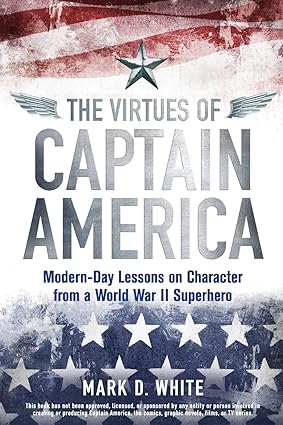
The Virtues of Captain America: Mode-Day Lessons on Character from a World War II Superhero
Author: Mark D. White (Author)
Publisher: Wiley-Blackwell
Publication Date: 2014-02-10
Edition: 1st
Language: English
Print Length: 256 pages
ISBN-10: 1118619269
ISBN-13: 9781118619261
Book Description
The first look at the philosophy behind the Captain America comics and movies, publishing in advance of the movie release of Captain America: The Winter Soldier in April 2014. In The Virtues of Captain America, philosopher and long-time comics fan Mark D. White argues that the core principles, compassion, and judgment exhibited by the 1940’s comic book character Captain America remain relevant to the mode world. Simply put, “Cap” embodies many of the classical virtues that have been important to us since the days of the ancient Greeks: honesty, courage, loyalty, perseverance, and, perhaps most importantly, honor. Full of entertaining examples from more than 50 years of comic books, White offers some serious philosophical discussions of everyone’s favorite patriot in a light-hearted and accessible way. Presents serious arguments on the virtues of Captain America while being written in a light-hearted and often humorous tone Introduces basic concepts in moral and political philosophy to the general reader Utilizes examples from 50 years of comics featuring Captain America, the Avengers, and other Marvel superheroes Affirms the value of “old-fashioned” virtues for the mode world without indulging in nostalgia for times long passed Reveals the importance of the sound principles that America was founded upon Publishing in advance of Captain America: The Winter Soldier out in April 2014.